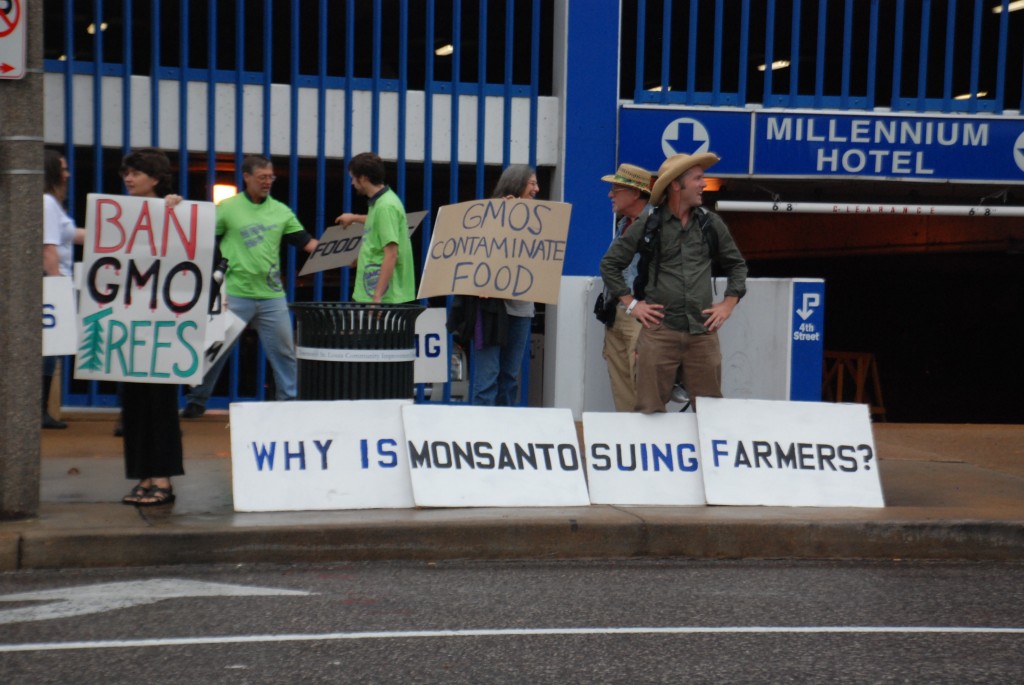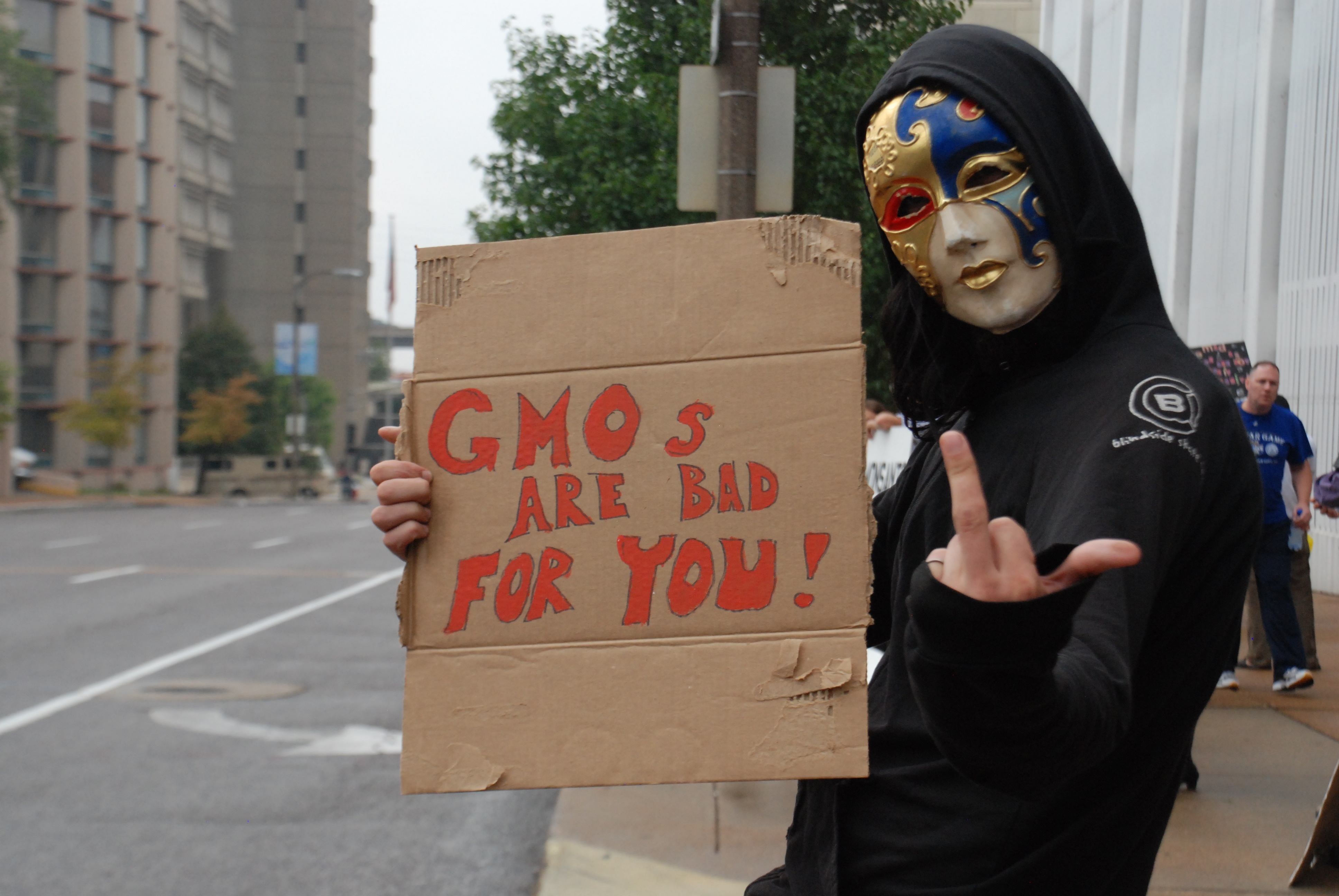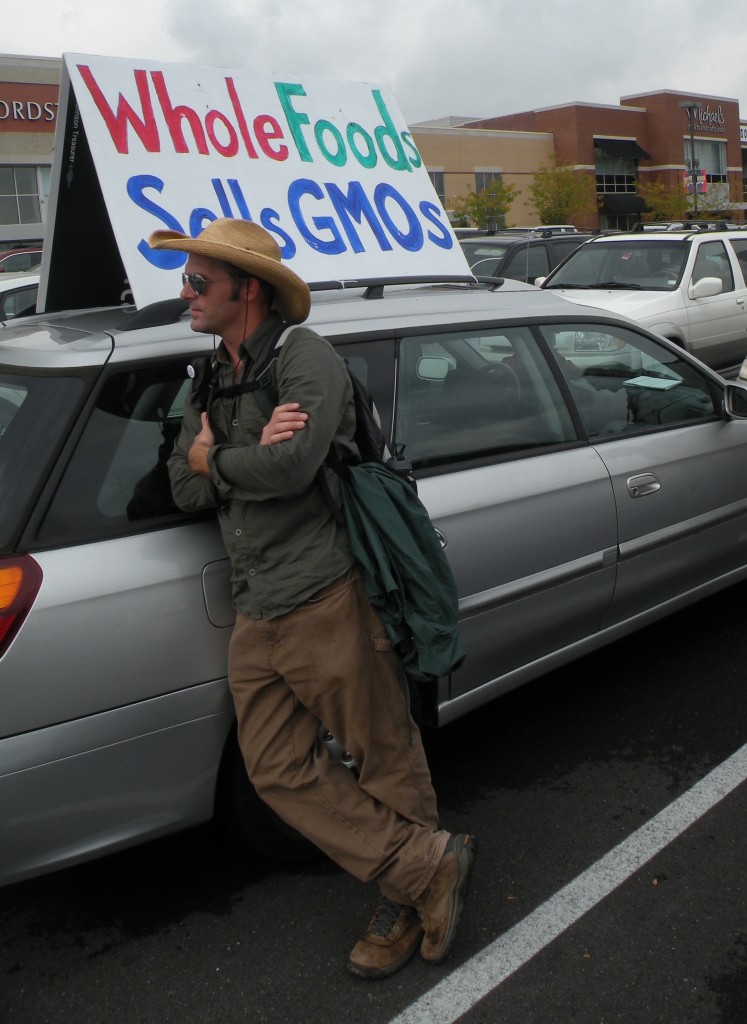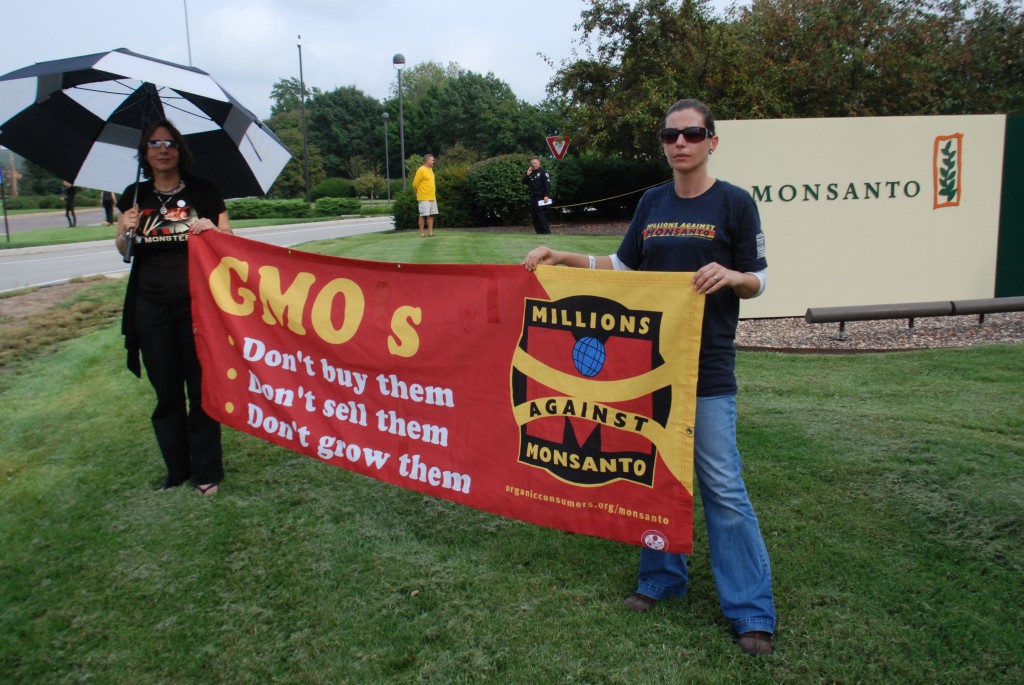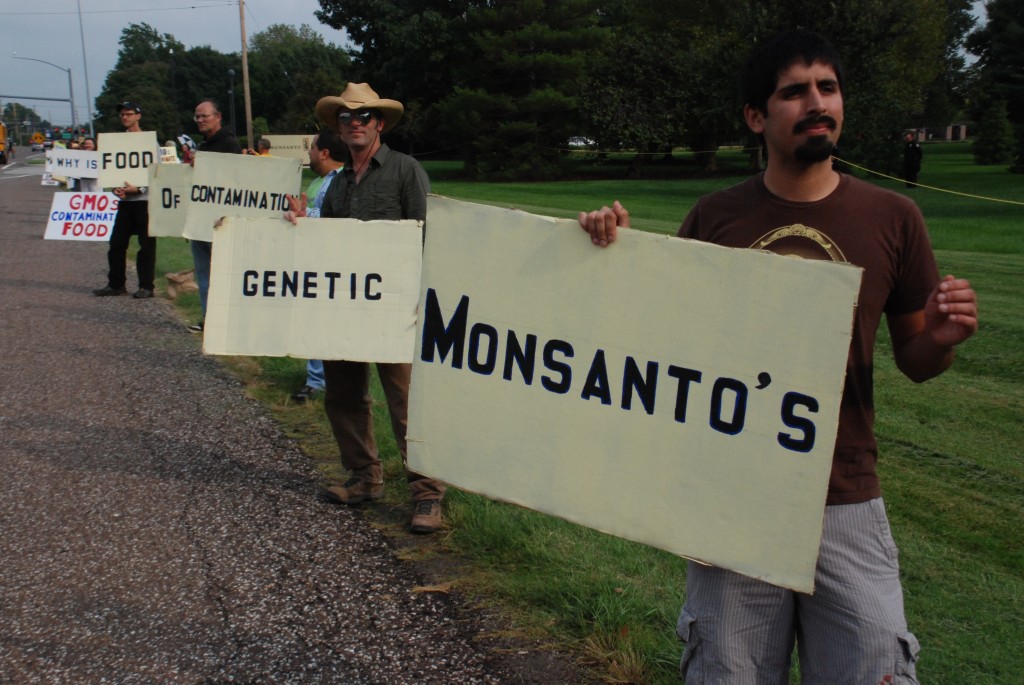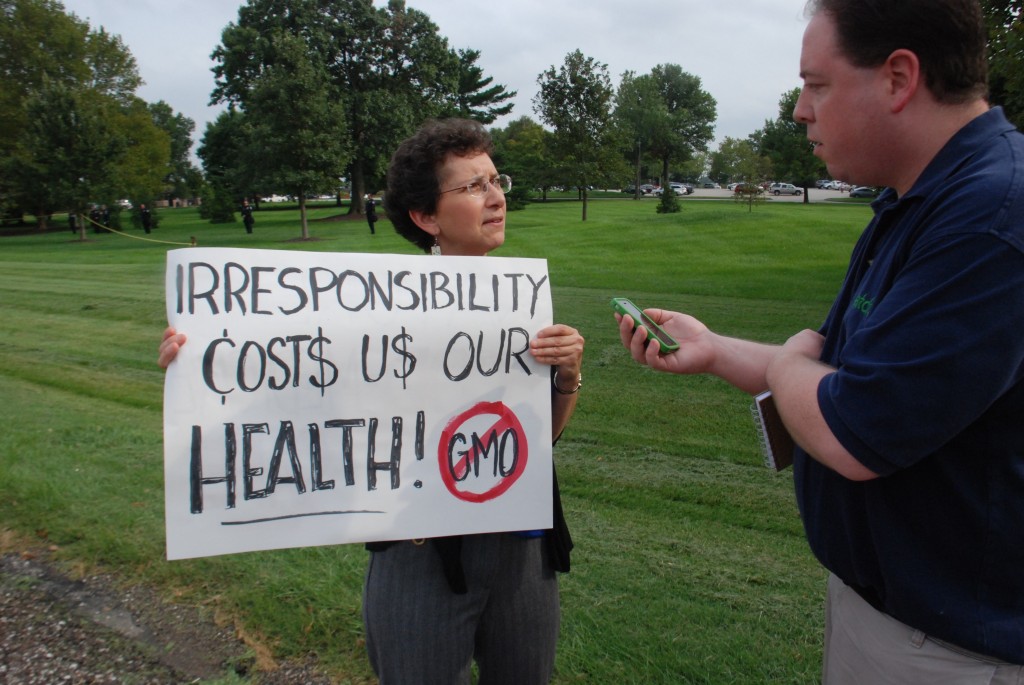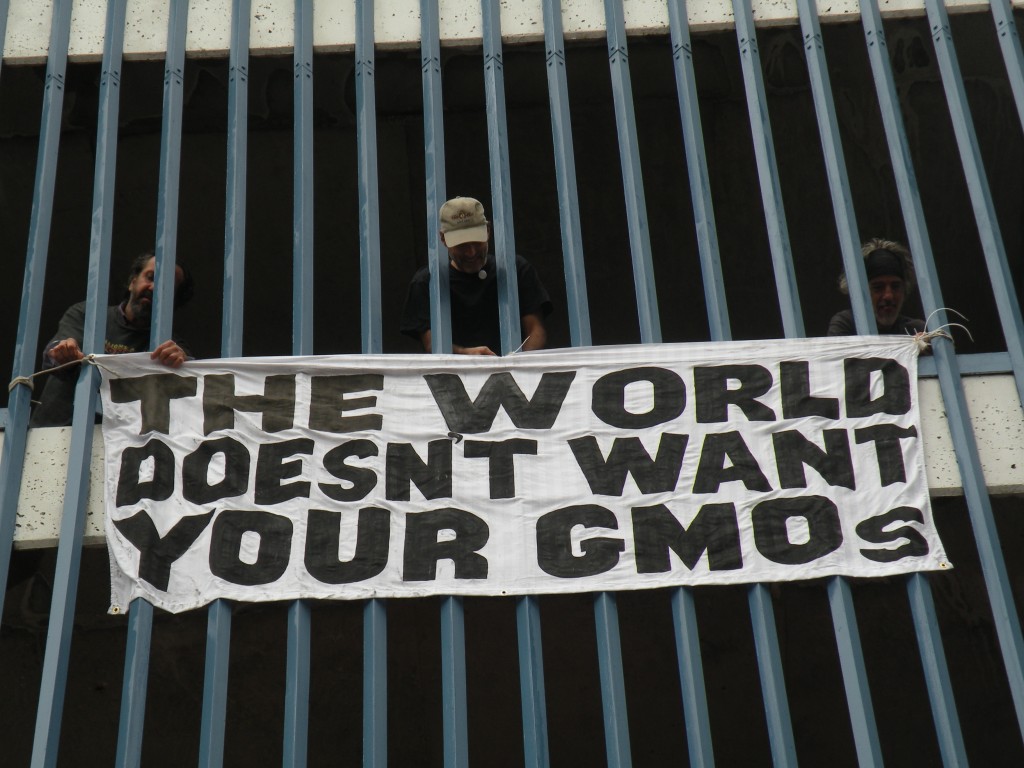
Activists from Millions Against Monsanto and the Gateway Green Alliance hang a banner across the street from an industry conference on “biosafety of GMOs.” Photo: Petermann/GJEP
Note: Global Justice Ecology Project Executive Director Anne Petermann and Board Chair Orin Langelle were in St. Louis over September 16 and 17 for the GMO-Free Midwest Conference and the Occupy Monsanto day of action. The events were organized by the Organic Consumers Association and the Gateway Greens Alliance.
Petermann spoke on the first day of the GMO Free Midwest conference on the dangers of genetically engineered trees at C.A.M.P. (Community Arts and Movement Project) near downtown St. Louis. Langelle spoke against the Green Economy during day two of the GMO Free Midwest conference. Day two of the conference was held simultaneous to the “12th International Symposium of Biosafety of Genetically Modified Organisms” at the Millennium Hotel, adjacent to the St. Louis arch.
The second day of the conference and the Occupy Monsanto actions which followed were held in celebration of the one-year Anniversary of Occupy Wall Street.
The photo essay below is from the day of activities against Monsanto, both the conference at the Millennium hotel and the three actions that followed. The actions included a rally outside of the Millennium Hotel, an action at Whole Foods directed at their policy of allowing GMO foods to be sold in their stores, and an protest outside the world headquarters of Monsanto in Creve Coeur, Missouri.
–The GJEP Team
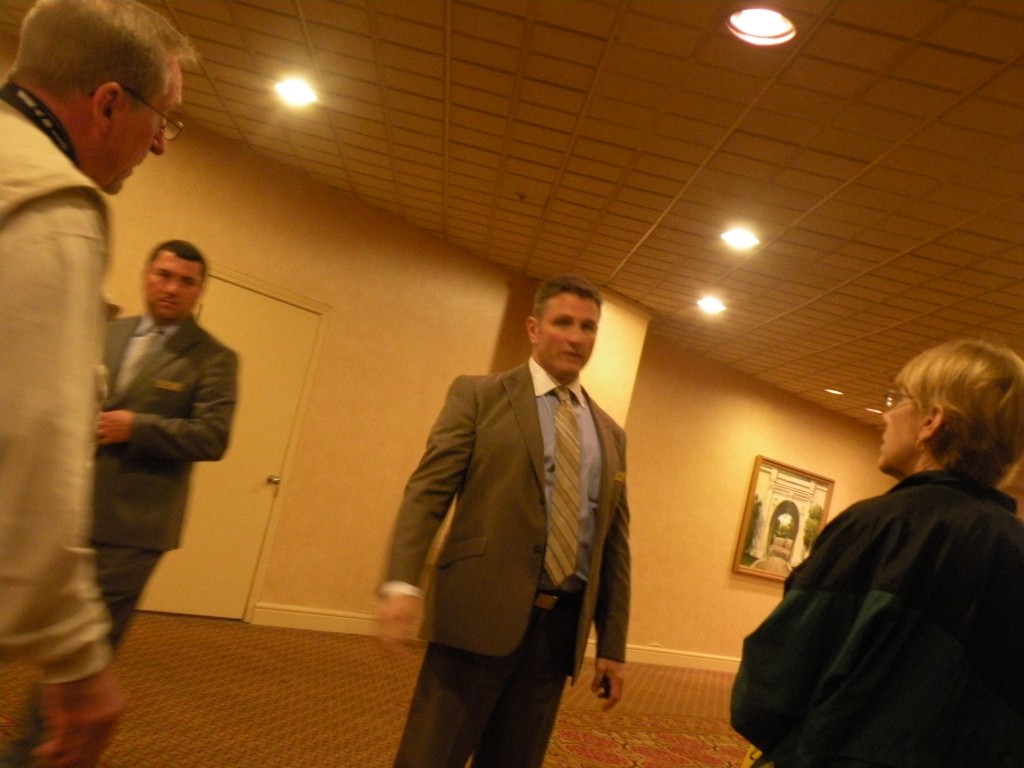
Rich Martin, a Director at the Millennium hotel, in full freak-out mode, threatens to throw out organizers and journalists from the GMO Free Midwest conference for asking questions and attempting to take photos. Photo: Petermann/ GJEP

Irina Ermakova, a leading scientist at the Russian Academy of Scientists presented on the health impacts of GMOs at the 12th International Symposium of Biosafety of Genetically Modified Organisms. She then left that event to join the activists at the GMO Free Midwest conference at the Millennium Hotel. Later she took part in the demonstration outside of the hotel in protest of the GMO industry conference. Photo: Petermann/GJEP

A mother and her two children protest Monsanto and GMOs outside of the Millennium Hotel. Photo: Langelle/GJEP

Mutant corn is turned away from participating in the “12th International Symposium of Biosafety of Genetically Modified Organisms.” Photo: Langelle/GJEP

Activist in Guy Fawks mask protests Monsanto during Occupy Monsanto day of action. Photo: Langelle/GJEP
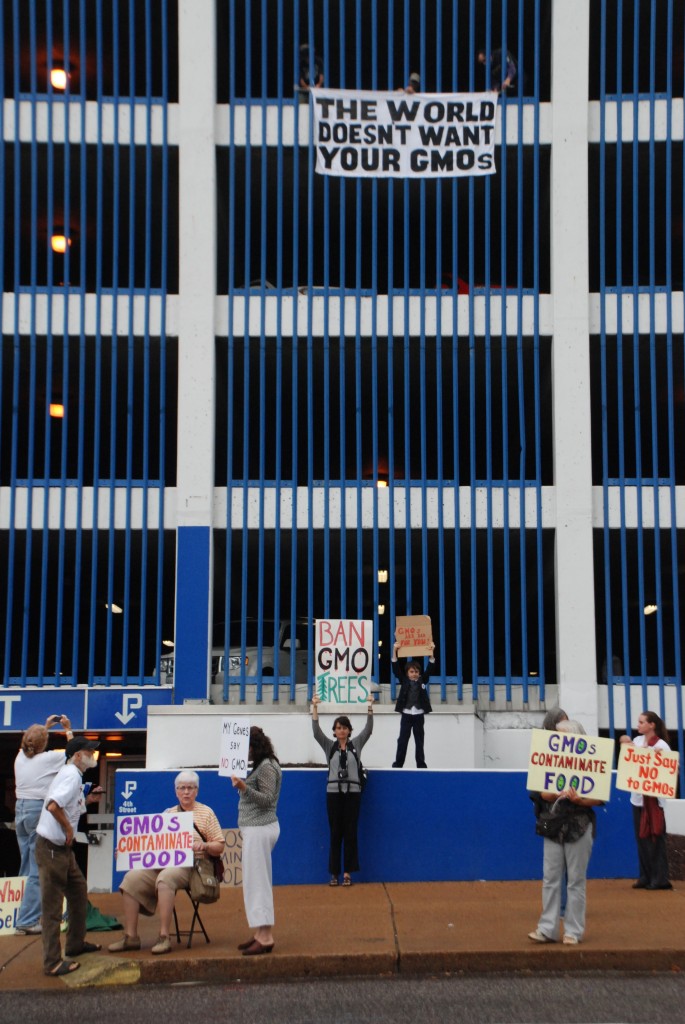
Protest across the street from the GMO industry conference at the Millennium Hotel in St. Louis, MO. Photo: Langelle/GJEP

After leaving the industry conference, activists went to Whole Foods for an action protesting the fact that Whole Foods carries unlabeled GMO foods. Photo: Petermann/GJEP

An activist ties up the line at Whole Foods by asking the clerk whether each of the items in her cart contain GMOs. Photo: Langelle/GJEP

A “superbug” caused by consumption of GMO crops argues with a police officer outside of Whole Foods. Photo: Langelle/GJEP

